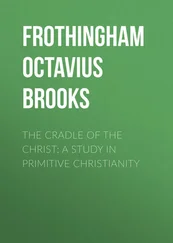George Fiske - The Challenge of the Country - A Study of Country Life Opportunity
Здесь есть возможность читать онлайн «George Fiske - The Challenge of the Country - A Study of Country Life Opportunity» — ознакомительный отрывок электронной книги совершенно бесплатно, а после прочтения отрывка купить полную версию. В некоторых случаях можно слушать аудио, скачать через торрент в формате fb2 и присутствует краткое содержание. Жанр: foreign_antique, foreign_prose, на английском языке. Описание произведения, (предисловие) а так же отзывы посетителей доступны на портале библиотеки ЛибКат.
- Название:The Challenge of the Country: A Study of Country Life Opportunity
- Автор:
- Жанр:
- Год:неизвестен
- ISBN:нет данных
- Рейтинг книги:5 / 5. Голосов: 1
-
Избранное:Добавить в избранное
- Отзывы:
-
Ваша оценка:
- 100
- 1
- 2
- 3
- 4
- 5
The Challenge of the Country: A Study of Country Life Opportunity: краткое содержание, описание и аннотация
Предлагаем к чтению аннотацию, описание, краткое содержание или предисловие (зависит от того, что написал сам автор книги «The Challenge of the Country: A Study of Country Life Opportunity»). Если вы не нашли необходимую информацию о книге — напишите в комментариях, мы постараемся отыскать её.
The Challenge of the Country: A Study of Country Life Opportunity — читать онлайн ознакомительный отрывок
Ниже представлен текст книги, разбитый по страницам. Система сохранения места последней прочитанной страницы, позволяет с удобством читать онлайн бесплатно книгу «The Challenge of the Country: A Study of Country Life Opportunity», без необходимости каждый раз заново искать на чём Вы остановились. Поставьте закладку, и сможете в любой момент перейти на страницу, на которой закончили чтение.
Интервал:
Закладка:
1. – How would you define the Rural Problem?
2. – Illustrate how the growth of the city has affected the rural problem.
3. – Explain the terms rural, urban, city, town, and village.
4. – What misleading comparisons have been made between city and country conditions?
5. – In what six states has the rural population, as a whole, shown a net loss in the last ten years?
6. – To what extent has rural America grown in population the past half century?
7. – Describe the symptoms of a decadent village.
8. – Under what conditions do you find a village improving even when losing population?
9. – Discuss carefully the comparative degeneracy of the city and the country.
10. – Describe some of the stages of rural degeneracy.
11. – What signs of rural degeneracy have come under your personal observation and how do you account for the conditions?
12. – What evidences have you seen of the “urbanizing” of rural life, and what do you think about it?
13. – Why do country boys and girls leave the farm and go to the city?
14. – What must be done to make country life worth while, so that a fair share of the boys and girls may be expected to stay there?
15. – How do you think a farmer ought to treat his boys?
16. – To what extent is the city dependent upon the country.
17. – Why do so many prosperous farmers rent their farms and give up country life?
18. – How does the village problem differ from the problem of the open country?
19. – Do you believe the open country will be permanently occupied by American homes, or must we develop a hamlet system, as in Europe and Asia?
20. – To what extent have you faith in the ultimate solution of the country problem?
CHAPTER II
COUNTRY LIFE OPTIMISM
This tribute to the fundamental value of rural life is a part of the classic inscription, cut in the marble over the massive entrances, on the new union railroad station at Washington, D. C. Its calm, clear faith is reassuring. It reminds us that there is unquestionably an abiding optimism in this matter of country life. It suggests, that in spite of rural depletion and decadence here and there, country life is so essential to our national welfare it will permanently maintain itself. So long as there is a city civilization to be fed and clothed, there must always be a rural civilization to produce the raw materials. The question is, will it be a Christian civilization?
Our opening chapter has made it clear, that if the rural problem is to be handled constructively and successfully, rural life must be made permanently satisfying and worth while. It must not only be attractive enough to retain a fair share of the boys and girls, but also rich enough in opportunity for self-expression, development and service to warrant their investing a life-time there without regrets.
The writer believes there are certain great attractions in country life and certain drawbacks and disadvantages in city life which, if fairly considered by the country boy, would help him to appreciate the privilege of living in the country. It is certainly true that there is a strong and growing sentiment in the city favoring rural life. Many city people are longing for the freedom of the open country and would be glad of the chance to move out on the land for their own sake as well as for the sake of their children.
In this connection the most interesting fact is the new interest in country life opportunity which city boys and young men are manifesting. The discontented country boy who has come to seek his fortune in the city finds there the city boy anxious to fit himself for a successful life in the country! In view of the facts, the farm boy tired of the old farm ought to ponder well Fishin’ ’Zeke’s philosophy:
“Fish don’t bite just for the wishin’,
Keep a pullin’!
Change your bait and keep on fishin’;
Keep a pullin’!
Luck ain’t nailed to any spot;
Men you envy, like as not,
Envy you your job and lot!
Keep a pullin’!”
In many agricultural colleges and state universities, we find an increasing proportion of students coming from the cities for training in the science of agriculture and the arts of rural life. This is a very significant and encouraging fact. It shows us that the tide has begun to turn. Rural life is coming to its own, for country life is beginning to be appreciated again after several decades of disfavor and neglect. Our purpose in this chapter is to discuss these matters in detail.
It is difficult to find a more comprehensive statement of the attractiveness of country life, in concrete terms, than this fine bit of rural optimism entitled The Country Boy’s Creed:
“I believe that the country which God made is more beautiful than the city which man made; that life out-of-doors and in touch with the earth is the natural life of man. I believe that work is work wherever I find it; but that work with Nature is more inspiring than work with the most intricate machinery. I believe that the dignity of labor depends not on what you do, but on how you do it; that opportunity comes to a boy on the farm as often as to a boy in the city; that life is larger and freer and happier on the farm than in the town; that my success depends not upon my location, but upon myself, – not upon my dreams, but upon what I actually do, not upon luck but upon pluck. I believe in working when you work and playing when you play, and in giving and demanding a square deal in every act of life.” 12 12 By Edwin Osgood Grover, the son of a country minister.
There are many contented country boys in comfortable modern homes and prosperous rural communities, who heartily assent to this rural confession of faith. “For substance of doctrine ” many a man would frankly accept it after a more or less disappointing life in the city whirl. It is not difficult to find men who really regret that they left the farm in young manhood, now that country life has so greatly increased in attractiveness. “Farm life has changed a great deal,” says one with a tone of regret, “since I left the farm twelve years ago. Machinery has been added, making the work easier; farming has become more scientific, giving scope to the man who does not wish to be a mere nobody. For the last few years there has been more money in farming.”
Every year now at Cornell University, some men change their course from the overcrowded engineering to the agricultural department. This confession of a late change of heart about country life comes from one of the engineers who apparently wishes he had done likewise: “When I entered the university and registered in mechanical engineering, I had the idea that a fellow had to get off the farm, as the saying goes, ‘to make something of himself in the world,’ and that a living could be made more easily, with more enjoyment, in another profession. But now, after seeing a little of the other side of the question, if I had the four years back again, agriculture would be my college course. As for country life being unattractive, I have always found it much the reverse. The best and happiest days of my life have been on the farm, and I cannot but wish that I were going back again when through with school work.”
City-bred Students in Agricultural Colleges
In reply to the question “Why are so many city boys studying agriculture?” a dean of a college of agriculture replied, “I think it is safe to say that a large number of city-bred boys are attracted to the agricultural colleges as a result of the general movement of our cities toward the country . The agitation which has caused the business man to look upon the rural community as more desirable than the city, leads him to send his son to an agricultural college in preference to other departments of the university.”
Читать дальшеИнтервал:
Закладка:
Похожие книги на «The Challenge of the Country: A Study of Country Life Opportunity»
Представляем Вашему вниманию похожие книги на «The Challenge of the Country: A Study of Country Life Opportunity» списком для выбора. Мы отобрали схожую по названию и смыслу литературу в надежде предоставить читателям больше вариантов отыскать новые, интересные, ещё непрочитанные произведения.
Обсуждение, отзывы о книге «The Challenge of the Country: A Study of Country Life Opportunity» и просто собственные мнения читателей. Оставьте ваши комментарии, напишите, что Вы думаете о произведении, его смысле или главных героях. Укажите что конкретно понравилось, а что нет, и почему Вы так считаете.












